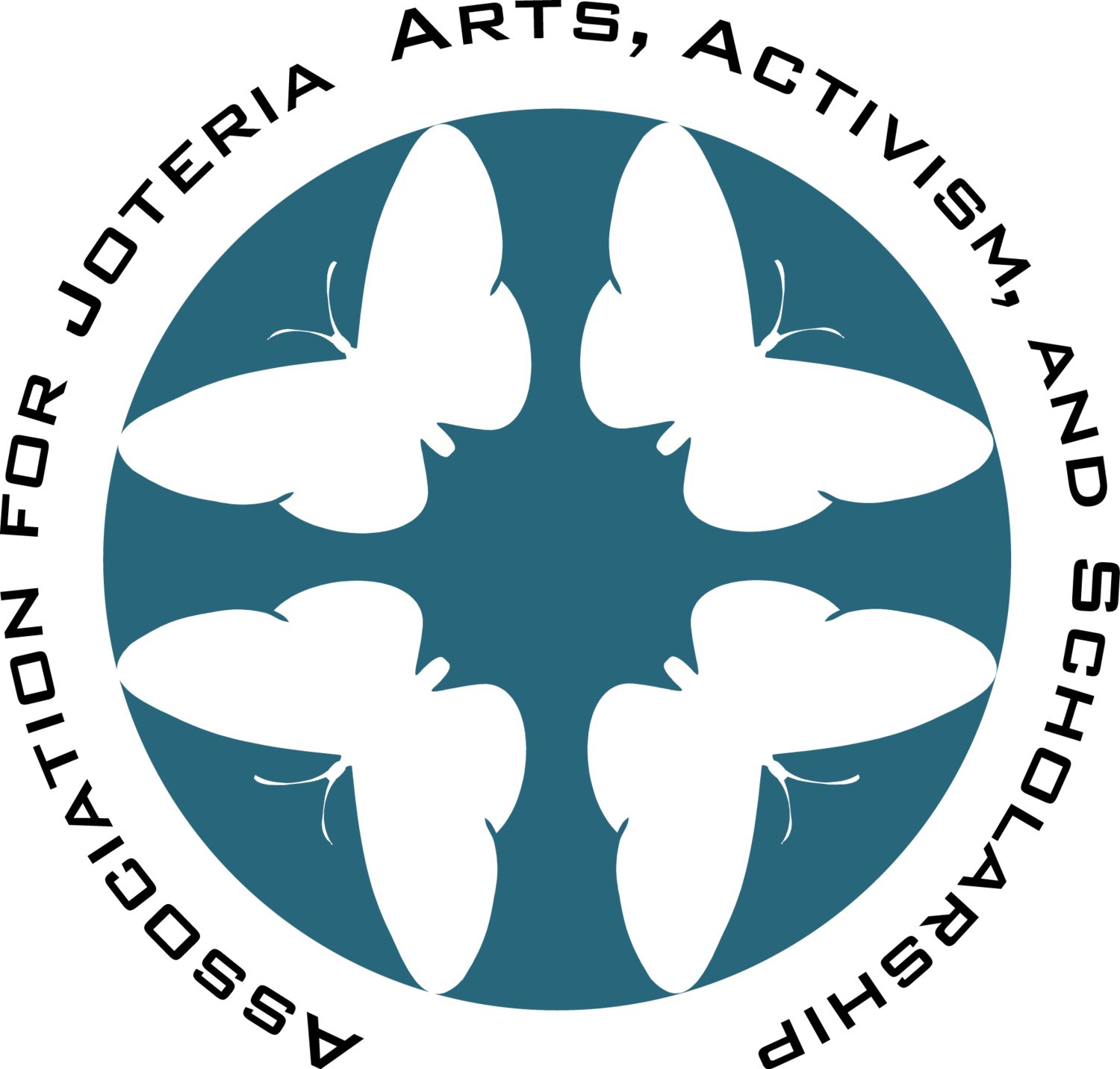The Association for Jotería, Arts, Activism, and Scholarship (AJAAS) is a national collective of artists, activists, and scholars who have been actively collaborating on projects since 2005. The timeline below provides a snapshot of some key events in our history, particularly as our origins are intertwined with several evolving discussions within the National Association for Chicano and Chicana Studies (NACCS) and other organizations.
TIMELINE—Our Historía
2004
At the NACCS Conference in Albuquerque, New Mexico, a panel on the history of the NACCS Lesbian Caucus is declared a “women-only” space by its organizer, and members of the Joto Caucus are asked to leave before the panel starts. Women on the panel and in the audience are not in agreement about declaring this space “women-only.” Nonetheless, the men are asked to leave by the organizer.
2005
In response to the incident the year before, the Joto Caucus hosts a daylong workshop at UCLA, entitled “Difficult Dialogues.” The goal of the workshop is to build a foundation with members of the Lesbian Caucus for future collaborations.
Members of the Lesbian Caucus push back against what they perceive to be its narrow identity politics. After a contentious meeting and discussion is brought to a vote, the Lesbian Caucus is renamed the Lesbian, BiMujeres, and Transgender (LBMT) Caucus.
2007
The Joto Caucus—in conjunction with activists, students, and one faculty member in Las Vegas—hosts a historic conference: “Towards a Queer Homeland: Bridging Communities and Resisting Hate.” This conference marks a turning point: shifting away from important women-only and men-only queer spaces created at NACCS that were no longer meeting the needs and collaborative aspirations of some of its members.
2008
The Joto Caucus celebrates its fifteenth anniversary by organizing a Quinceañera, in conjunction with ALLGO, at the Mexican American Cultural Center in Austin, Texas. The program includes poetry by Daniel Enrique Pérez, a ceremony to honor our “madrinas” and “padrinos,” and a performance by Tragic Bitches. As part of the ceremony, the Joto Caucus pays homage to the LBMT Caucus, Chicana/Latina feminists, and the jotos, jotas and allies that came before them and paved the way. This was an intentional ceremony to honor the past and encourage future collaborations. As the quinceañera program states, “we have instituted a new trajectory to move beyond previous goals, boundaries, and notions of identity.”
2009
The Joto Caucus, in conjunction with members of the Lesbian, BiMujeres, and Trans (LGBT) Caucus, hosts a second conference at California State University, Los Angeles: “Sacred Space Making: Mapping Queer Scholarship, Activism, and Performance.”
2010
The third conference, held at the University of Oregon, was the first to be intentionally co-sponsored by both the Joto Caucus and the LBMT Caucus. It was also the first conference that highlighted the inclusion of mixed-race people and transgender members of our communities in participation and programming. It was titled “Un Re-encuentro con mi otr@ yo: Legacies of Survival, Healing, Learning, and Resistance.”
2011
Members of the Joto Caucus and LBMT caucus meet in Berkeley, California for two days and establish the new Association for Jotería Arts, Activism, and Scholarship (AJAAS).
2011-2012
A series of working meetings are held at UNLV and UCLA in an effort to engage new people who represent different facets of our community.
2012
The first AJAAS conference—“We Speak for Ourselves: Decolonizing Nuestr@s Conciencias, Cuerpos, La Tierra y el Alma”—is held at the University of New Mexico.
2015
The second AJAAS conference—“Re-Imagining JoteriAZ: Queer Gatherings en Movimiento”—is held at Arizona State University.
2017
The third AJAAS conference—“Amor Eterno: Manifesting Generational Love, Queer Sanctuaries, and Radical Solidarities”—is held at the University of Minnesota, Minneapolis Campus and El Colegio High School.
2019
The fourth AJAAS conference—“Entre Ríos y Fronteras: Reframing Jotería Futurity and Kinship" —is held at Portland State University.
